If you’re Jewish, or Jew-ish, or merely subscribe to the view that Jews should be trusted to recognise anti-Semitism rather than be accused of making false allegations to further their own malign agenda, the chances are you could do with a laugh right now. The resurgent far right’s threat feels frightening but expected, whether from torch-waving American mobs or European ethno-nationalists directing the restive masses’ anger towards the traditional target, presently embodied by George Soros.
More dismaying for many have been the myriad controversies involving putative anti-racists: for instance, the Momentum activist who claimed that Jews were the slave trade’s ‘chief financiers’ and ‘rank their suffering above other oppressed minorities’; or the Bradford council candidate selected last week who once asked on Facebook: ‘What have the Jews done good in this world?’; or the group of Labour conference delegates leafleting against the NEC’s proposal for tackling anti-Semitism, who saw an identifiably Jewish stranger approaching and turned their backs on him.
The poisonous assumption that Jews habitually smear critics of Israel by lying about anti-Semitism is now ingrained among such people. Humour is fundamental to Jewish culture — whose literature Saul Bellow characterised as dealing in ‘laughter and trembling’ — but many British Jews are, if not visibly trembling, uneased by a distinct chill in the air.
So… anyone know any good jokes? The literary academics Devorah Baum and Jeremy Dauber do, and between them their books examine how diaspora Jews have tended to relate to the world, with humour an enduring survival tactic. Dauber’s history of Jewish comedy is really one of how the past century’s American-Jewish comedy relates to a deeper cultural heritage — but, that caveat aside, it displays impressive mastery of the subject. Rather than set out a single chronology, he divides Jewish humour into seven themes, among them satire, reaction to anti-Semitism, the vulgar and body-obsessed, and the ambiguous nature of Jewishness itself.
Dauber studies humorists from wry Talmudic sages and the Yiddish fabulist Sholem Aleichem through to contemporary comics such as Larry David and Sarah Silverman, and he establishes traditions that are often biblical in origin. For instance, he links the story of Jonah — who ultimately succeeds in his divinely appointed task despite trying to fail — with the moment in Mel Brooks’s The Producers when Max Bialystock hears the rave reviews for Springtime for Hitler.
Brooks came out of the Borscht Belt comedy circuit. By the second world war there were about 400 hotels in the Catskill mountains, mostly brimming with Jewish holidaymakers who headed upstate to escape the stifling heat of a New York City summer. They weren’t so likely to go down to Florida back then, when the Miami Beach Gulf Hotel marketed itself with the alluring line: ‘Always a view, never a Jew.’
Entertainers tried to make light of Jews being stereotyped as undesirables, arrivistes and greedy swindlers. ‘I’m so sorry, Cohen,’ the old joke goes, ‘I heard about your store burning down yesterday.’ Cohen: ‘Shh! Tomorrow!’ Of course, libels about Jewish avarice long predated that period and still thrive. Take Nigel Farage’s remarks on LBC about Israel and the ‘money and influence’ of the ‘Jewish lobby’; or a filmed incident at an anti-Israel rally in London in 2015 when a Scottish man, later arrested, waved a penny at Jewish counterdemonstrators and told them: ‘You only understand money!’ (These illustrate the problem with the simplistic mantra ‘It isn’t anti-Semitic to criticise Israel’: no, it isn’t, except for when it is.)
It helps to draw a wistful laugh from such absurdities. There’s a long joke that Dauber and Baum tell in different ways, which in essence goes like this. In the Pale of Settlement Moshe and Abram are walking down the street, kvetching about being too poor to eat, when they pass a church with a sign that reads: ‘Convert and we’ll give you ten roubles!’ Moshe looks at Abram and says: ‘You know what, I’m going to do it,’ and goes inside. Twenty minutes later he emerges looking solemn, his head bowed. ‘Well,’ says Abram, ‘did you do it? Did you get the ten roubles?’ And Moshe looks up at him and says: ‘Why is it you people only ever think about money?’
The American children of refugees from the Pale made a rapid progress that the writer Harry Golden characterised as ‘from shul to pool’ (or as someone quipped: ‘What’s the difference between a tailor and a psychiatrist? A generation’). But wider acceptance was often provisional on scrubbing off their Jewishness. Back in the 1920s Dorothy Parker ridiculed the comedienne Fanny Brice for having a rhinoplasty — ‘cutting off her nose to spite her race’. And in 1959 Philip Roth satirised such behaviour among the assimilating Jewish middle class in his literary debut, Goodbye, Columbus.
The self-thwarting ambitious Jew became a comic staple. A well-known joke sees Mr and Mrs Greenstein do all they can to join the local gentiles-only country club: they change their name to Grenville, have cosmetic surgery, refine their speech and manners, and sail through the vetting process until the interviewer’s final question. ‘And what is your religion?’ he asks. ‘I, my good man,’ says Mrs Grenville haughtily, ‘am a goy.’ Whether to shrug off snobbery or evade more vicious manifestations of anti-Semitism, Jewish humour became a two-way defence mechanism: while inwardly it diverts one’s emotional response into laughter rather than tears, outwardly it might just distract would-be persecutors. ‘If they’re laughing,’ Mel Brooks once said, ‘how can they bludgeon you to death?’
It became plain by the mid 20th century that you didn’t have to be Jewish to appreciate Jewish comedy. It chimes with anyone who has felt uncertain, excluded, or that one might as well laugh to keep from crying: in other words, human beings. The idea that the Jewish condition is becoming universal in our age of anxiety and migration informs the British writer Baum’s Feeling Jewish, a scintillating exploration of how feelings stereotypically associated with Jewishness — guilt, hysteria and self-hatred, for instance — are not quite so uncomplicatedly negative as is surmised and, what’s more, increasingly common in a globalised, hyperconnected society.
This is what Bernard Malamud sensed when he claimed that ‘All men are Jews’, Baum argues. In her words, today
all men are strangers, lost, uprooted, wandering around in a world that would feel permanently hostile… were we to fail to recognise that what we share is precisely this: the feeling that we differ.
In a chapter on paranoia she unpicks the conspiracist mindset of 9/11 ‘truthers’ and Holocaust deniers, and elsewhere she psychoanalyses the relationship between Christianity and the Judaism that is both its ‘mother’ and its ‘other’. Jews, too, often ‘other’ themselves via social class and religious divisions, she points out. Witness the joke about the man shipwrecked on a desert island who builds two synagogues. ‘This one I attend,’ he tells his rescuers. ‘That one I don’t attend.’
Next to this The Jewish Joke is relatively slight, but the dozens of examples it contains are strung together by illuminating analysis. Where humour crosses borders, Baum observes, it builds empathy and hope for coexistence, both in Israel-Palestine and the diaspora: ‘Because isn’t it the moment when someone… finds the same things funny as we do that we implicitly recognise them as one of our own kind?’
Feeling Jewish and Jewish Comedy likewise extract cautious optimism from unlikely sources. They will enhance Jews’ and gentiles’ understanding of what it is to be Jewish. The tragedy is that those who could learn most from these books will proudly turn their backs, imagining they have a moral imperative no longer to empathise with those infuriatingly self-absorbed Jews; why won’t they get over themselves, see the bigger picture, stop wallowing in their historic victimhood and boycott Israel?
If one holds the misguided belief that a nation founded after the culmination of two millennia’s ostracism, marginalisation and contempt will be shamed into enlightenment by a renewed project of ostracism, it follows that those perceived to support Israel — which is to say all Jews until they declare otherwise — deserve the same treatment.
But for the rest of us, who see no contradiction in desiring a just settlement for the Palestinians and a political climate in which Jews are respected as the best-placed arbiters of anti-Semitism — a phenomenon that, funnily enough, by dint of centuries’ forced engagement they tend to understand well — Baum and Dauber’s books will vivify what seemed familiar territory. They also direct us towards laughter when the other option feels tempting, and for that we owe both authors our thanks.
Got something to add? Join the discussion and comment below.
Get 10 issues for just $10
Subscribe to The Spectator Australia today for the next 10 magazine issues, plus full online access, for just $10.
You might disagree with half of it, but you’ll enjoy reading all of it. Try your first month for free, then just $2 a week for the remainder of your first year.

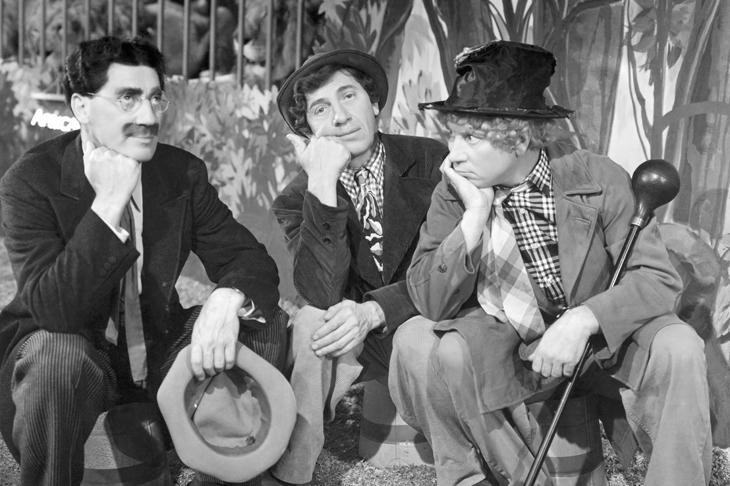

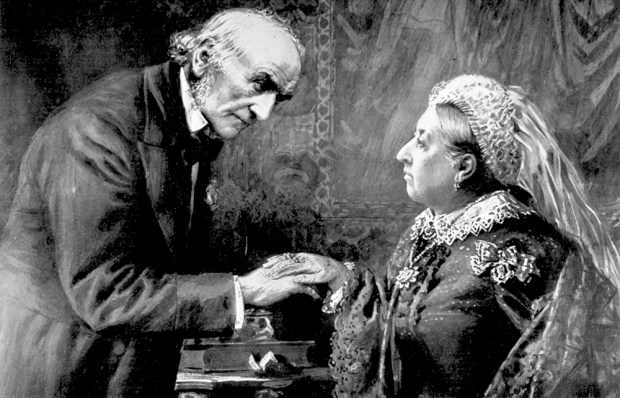
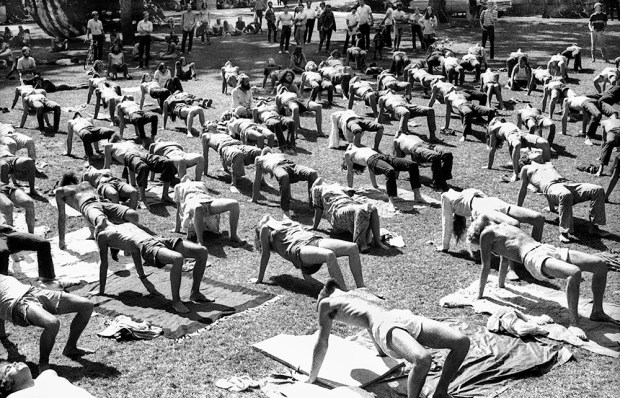

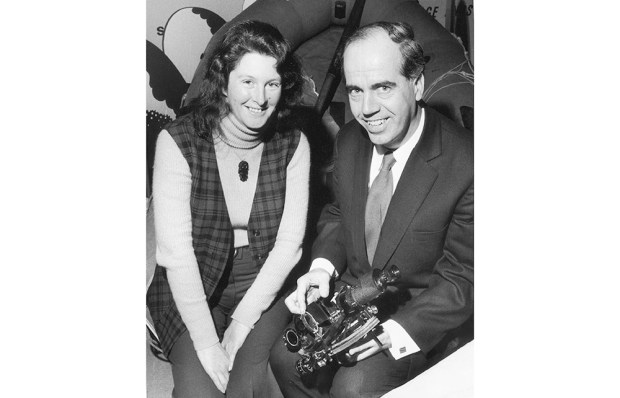
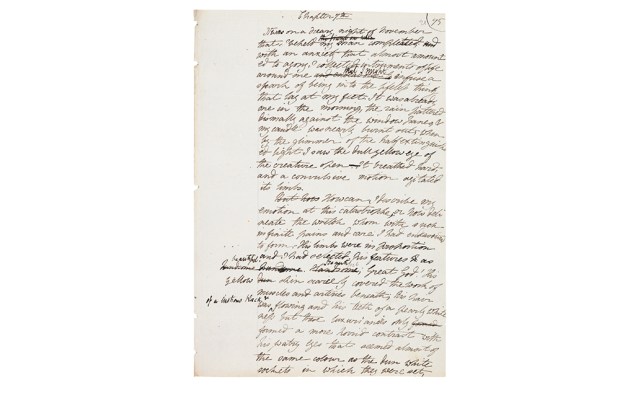






Comments
Don't miss out
Join the conversation with other Spectator Australia readers. Subscribe to leave a comment.
SUBSCRIBEAlready a subscriber? Log in